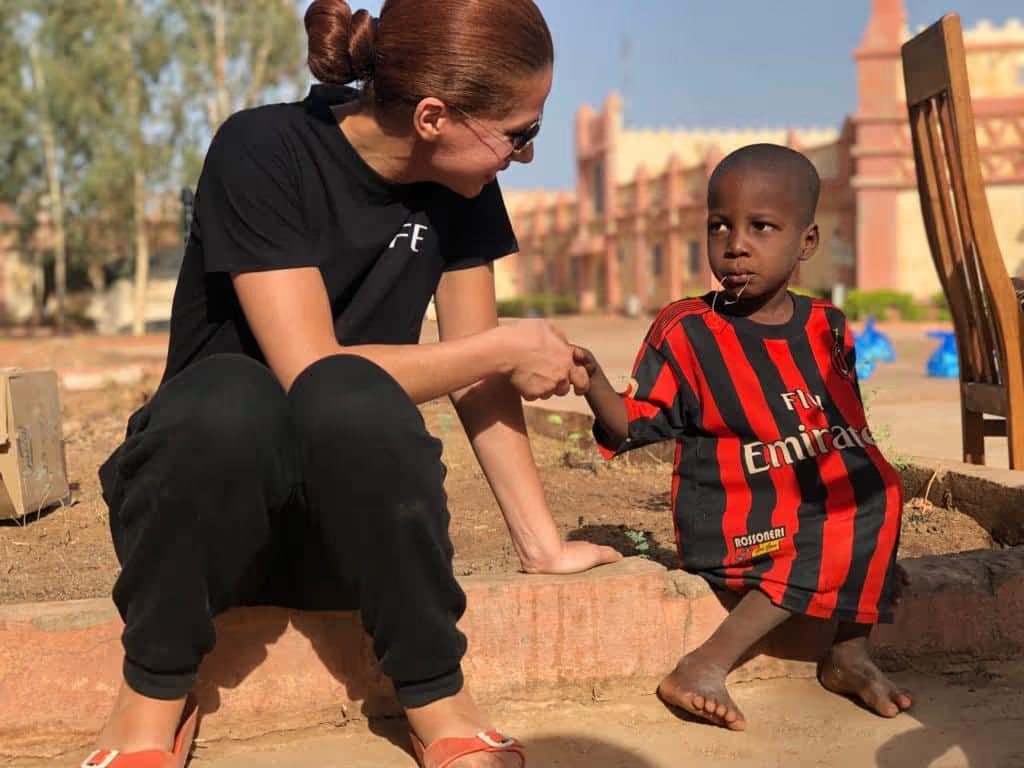8 humanitarian crises in 2024
.png)
The year 2024 is marked by unprecedented humanitarian challenges that require immediate and coordinated action. Millions of people around the world are facing crises that threaten their survival, dignity, and future. Faced with these disasters, we must respond with compassion, solidarity and determination. Here are ten major humanitarian crises that require urgent mobilization! Together, we can give hope back to these women, men, and children who have sometimes lost everything.
1. The food crisis in Africa
In East, Central and West Africa, in countries such as Ethiopia, Somalia and Kenya, about 60 million people are suffering from hunger as a result of prolonged drought, conflicts and economic shocks.
More than 5.7 million children are suffering from acute malnutrition, of which over 1.7 million are in a state of severe malnutrition, requiring urgent medical care. The Horn of Africa has experienced five consecutive failed rainy seasons, creating one of the worst droughts in over 40 years. This has led to massive losses of livestock and crops, putting the livelihoods of millions of people at risk. More than 9 million head of cattle have died in the region! Agricultural systems are in decline, and food supplies are running out.
In 2024, a rapid and massive response is essential to avoid a large-scale disaster. Humanitarian aid, support for local farmers, and initiatives to strengthen community resilience should be prioritized.
2. The war in Ukraine
Since the invasion of Ukraine by Russia in 2022, the country has been experiencing a humanitarian crisis of an unprecedented scale in Europe since the Second World War. Millions of people have been displaced within the country or have fled to neighbouring states in search of safety. Civilian infrastructure, including hospitals, schools, and water supply networks, have been severely damaged by the fighting, leaving the population without access to essential services.
In 2024, Ukraine needs massive humanitarian aid to support vulnerable populations, especially during the coming winter months where extreme cold threatens the poorest. Access to electricity, heating and clean water is urgent in many parts of the country. In addition, psychological support for people traumatized by war, especially children, is crucial to help with social reconstruction. The international community must intensify its efforts to ensure that aid reaches those who need it most, while promoting initiatives to end the conflict.
3. The emergency in Palestine
Since October 2023, the conflict between Israel and Palestine has escalated dramatically. An increase in Israeli air strikes on the Gaza Strip took place in response to rocket fire launched from that enclave. These bombings have caused thousands of deaths and injuries among Palestinian civilians, worsening an already critical humanitarian situation due to the blockade imposed by Israel. In Gaza, where 2.3 million people live in conditions of extreme overcrowding, basic infrastructure is on the verge of collapse, and shortages of food, water, and medicine are worsening. Humanitarian efforts are severely hampered by movement restrictions, while overwhelmed hospitals are struggling to cope with the influx of injured people. Despite international calls for a ceasefire, the violence continues, fuelling a cycle of reprisals.
It is imperative that the international community find lasting solutions to the Israeli-Palestinian conflict while ensuring the delivery of humanitarian aid. Rebuilding critical infrastructure and improving living conditions in Gaza and the West Bank must be a priority in order to give Palestinians a chance to live in dignity and peace.
Our NGO LIFE has been working in Palestine for several years, but is redoubling its efforts in this emergency situation. If you want to contribute with us to help the people of Gaza, you can donate.

4. Floods in Bangladesh
For several years, and especially in 2024, Bangladesh has been facing devastating floods caused by exceptionally heavy monsoon rains and the overflow of rivers. The country, which is vulnerable to natural disasters, is seeing the frequency and intensity of these phenomena increase with climate change.
The latest floods have overwhelmed entire cities, affecting nearly 5 million people, including 1.5 million children. Hundreds of thousands of people have been displaced, their homes destroyed by the waters. Around 200,000 people are currently in shelters. Critical infrastructure, including roads and bridges, has been severely damaged, hampering relief efforts.
Our NGO LIFE has been working in Bangladesh for many years, both in terms of access to education and access to drinking water, sanitation (construction of latrines, etc.). Following the cyclone of May 2024, we distributed thousands of hygiene kits to populations in need.

5. Rohingya refugees
Also in Bangladesh, the Rohingya, a Muslim minority in Burma, continue to live in precarious conditions after fleeing violence and persecution in their country of origin. In 2024, more than one million of them were settled in overcrowded camps, in deplorable health conditions. Access to education and health services is limited. It is crucial for the international community to intensify its efforts to find lasting solutions, including the safe return of refugees to Burma or their resettlement in third countries.
6. The Lebanese crisis
Lebanon, in 2024, is caught in a maelstrom of multiple crises. The country, already ravaged by an unprecedented economic crisis, is plunging even deeper into instability with the intensification of the Israeli-Palestinian conflict. The repercussions of this war, just on its southern borders, are exacerbating internal tensions, stoking political divisions and fuelling fears that the country will once again become a battlefield.
The Lebanese currency is collapsing, public services are in ruins, and millions of people are living in poverty. At the same time, Palestinian refugees, already in large numbers in the territory, are seeing their hopes for a better future recede. The pressure on infrastructure is unsustainable, and the specter of new population displacements is heavy.
Today, Lebanon is at a decisive turning point. Despite the enormous challenges it faces, it remains a symbol of resilience and survival in the midst of regional turmoil. If the international community chooses to act in solidarity, it can help preserve this country once called “the Switzerland of the Middle East”, and offer it a chance to recover and regain its stability.

7. The conflict in Yemen
Yemen is the scene of one of the worst humanitarian crises of our time. After nearly a decade of war, violence continues to tear the country apart, leaving millions of people on the brink of famine, compounded by epidemics such as cholera. Since 2015, the conflict has claimed more than 12,000 civilian victims, and 80% of the population requires humanitarian aid. The infrastructure is in ruins, and entire generations of children have known nothing but war, disease and misery. The conflict, fuelled by regional powers, seems endless, and yet global attention is fading, leaving Yemen in the shadows.
Despite the constant appeals of humanitarian organizations, international aid is struggling to meet the urgent needs of the population. Every day, families struggle to survive in the face of a shortage of food, clean water, and basic medical care. The future of Yemen now depends on global mobilization to end this war, rebuild a devastated country, and restore hope to a nation that refuses to collapse.
8. The crisis in Syria
Syria is a fractured country, marked by 13 years of relentless war. The scars of past conflicts are everywhere: cities in ruins, millions of displaced people, and a people exhausted by violence and poverty. In addition, natural disasters are multiplying, such as the earthquake that in February 2023 killed nearly 60,000 people in Turkey and Syria. The country is trapped between a devastating economic crisis, international sanctions that are strangling its recovery, and an international community divided over how to act.
Syrians, who once dreamed of peace, are now struggling to survive in a daily life of deprivation, where water, electricity and health care have become scarce. The reconstruction of Syria seems out of reach without a real surge of solidarity. In the midst of this chaos, hope persists, fragile but tenacious. The resilience of the Syrian people could be the key to a revival, provided that all of us together finally commit ourselves to supporting this broken nation.
In 2024, the humanitarian crises the world is facing require a collective and urgent response more than ever. Every action counts, every donation, every gesture of solidarity can save lives and give hope to those who need it most. Together, we have the power to make a difference. In 2024, let's choose humanity and solidarity.
Let's work together to meet the needs of these populations and help them rebuild.



.avif)




